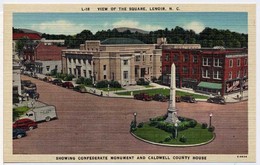 Google is opening plants in obscure locations, such as Lenoir, North Carolina:
Google is opening plants in obscure locations, such as Lenoir, North Carolina:
Last month, the Internet search giant Google announced that it would take advantage of the area’s underused electric power grid, cheap land and robust water supply to build a “server farm” — a building full of computers that will become part of the company’s worldwide network.Is google doing this out of the goodness of its googly heart? Doubtless not primarily; obviously google is looking for a good deal.Google says it hopes laid-off furniture workers, most of whom never graduated from high school, will be among the 250 employees at two facilities on the 215-acre site, much of which was once a lumberyard.
— Google Is Reviving Hopes for Ex-Furniture Makers, By SHAILA DEWAN, The New York Times, March 15, 2007
However, this does remind me of Henry Ford’s attempts to revive or introduce distributed rural industry during the 1920s and 1930s. Most people don’t know about this, because World War II sucked up the labor force and did in those distributed factories.
Sure, Ford was in it for cheap labor, but he was also seriously interested in improving the rural life from whence he came. Sometimes you can have it both ways.
People wonder about the secrecy of the negotiations or the extent of the tax breaks. Having lived near Austin, Texas for 25+ years and seen Dell, Samsung, Apple, and others get sweet tax deals after obscure negotiations, I don’t find that surprising.
I do find it interesting that, just as Henry “assembly line” Ford did useful things in rural areas, google “server farm” search engine company seems to be following suit. Henry Ford depended on the increasing use of his own automobiles and trucks over new roads to make his new distributed industries work. Google depends on increasing use of the Internet to do the same. Sometimes it’s good for history to repeat itself.
-jsq